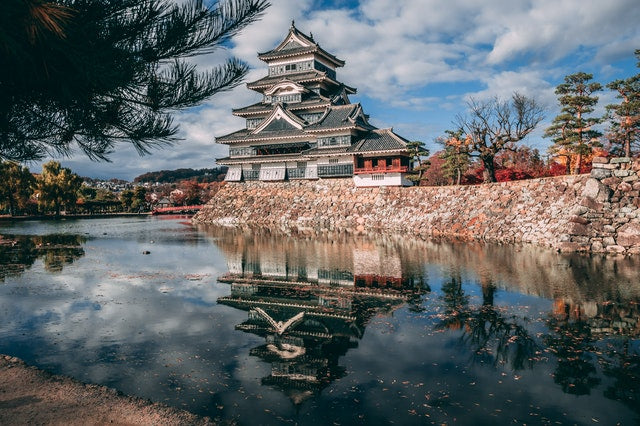If you haven't already visited Japan, you should. If you've been there in the past, go again. It's one of the most magical, most cultured, and most historical places on Earth. Just about every region in the nation has its own culture, customs, and unique backstory. In many ways, touring Japan is like visiting several dozens of countries at once!
But before you touch down in the Land of the Rising Sun, you need to bone up on their dialect. What languages do they speak there? What dominant words and phrases should you master before attempting to talk to the locals? This is essential stuff, which is why we at Jarvisen have compiled this quick guide.
Between this article and your Jarvisen Smart Translator, you'll be turning Japanese in no time!
Languages

As you'd expect from the name "Japan," the primary language of the land is Japanese. It's not the most accessible language for quick learning, but with the help of your Jarvisen, you'll learn what everyone's saying real fast.
Japanese isn't the only language you'll hear, however. Japan has its fair share of tourists and immigrants, which means a good many dialects too. Expect to hear a lot of Korean, Portuguese, and Chinese during your travels. Jarvisen covers all these languages so that you won't be lost, but it's still good to know what you'll encounter beforehand.
Words

Even with your Jarvisen by your side, becoming fluent in a local language isn't easy. Good news: you don't have to! Nailing certain important words might not guarantee a long, drawn-out conversation with the bartender. It will, however, help you get around town (and ensure the bartender likes you enough to mix your drink just right).
Make sure to master yes and no first and foremost. Respectively, it's hai (はい) and lie (いいえ). You've likely heard hai all over TV and the movies, so that's easy enough. And you can remember lie because to lie is a big no-no.
When greeting someone, you can do so with (いらっしゃい) irasshai, which means "welcome" or "hello."
When asking for something, make sure to say Onegaishimasu (お願いします), or "please." Thank them afterward with arigatou gozaimasu (ありがとうございます). You can channel your inner Styx and say domo arigatou (ども ありがと), but use gozaimasu to offer maximum respect.
When getting someone's attention, say sumimasen (すみません), or "excuse me." If you made a mistake then say "I'm sorry" with gomen nasai (ごめんなさい), and don't forget to bow afterward. It's not a proper apology without that token of respect.
Finally, no matter where you go, you'll need to relieve yourself eventually. So long as you know otearai (お手洗い) means "bathroom," anyone you ask will quickly point you in the right direction.
Phrases

There are specific longer phrases you should master as well if you want to make your time in Japan more relaxed and enjoyable.
For starters, don't be afraid to admit when you don't know something. Saying nihongo ga wakarimasen (日本語がわかりません) meaning "I don't understand Japanese") or asking "eigo o hanasemasu ka? (英語を話せますか)" which means "Can you speak English?" isn't shameful in the least.
Neither is asking "mou ichido onegai shimasu? (もう一度お願いします)" which means "Could you repeat that please?" Most people would rather hear honesty than watch you struggle and stumble through a conversation you clearly don't understand.
When trying to find something or someplace, ask "[Thing or Place] wa doko desu ka? ([Thing or Place] はどこですか)" This means, "Where is [Thing or Place] ?"
You'll have to learn the word for whatever place or thing you're searching for, but between you and your Jarvisen, this shouldn't be a tall task.
When shopping and wondering how much something costs, ask "ikura desu ka? (いくらですか)" or "How much is it?"
If you can't find what you're looking for, ask, "[Thing] wa arimasu ka? ([Thing] はありますか)" or "Do you have [Thing]?"
After you've eaten, whether at someone's home or a restaurant, be polite and thank your host with gochisousama deshita (ごちそうさまでした), or "thank you for the meal."
Finally -- and this may be among the most essential phrases in the 21st century -- asking someone "doko de intaanetto o tsukaemasu ka? (どこでインターネットを使えますか)" translates to "where can I use the internet?"
This isn't just because Jarvisen works best when connected to the internet. It's also because those Facebook posts about the excellent time you're having in Japan won't write themselves!


Share:
Important Languages and Phrases To Know When Visiting South Korea
Phrases You Should Know Before You Visit China